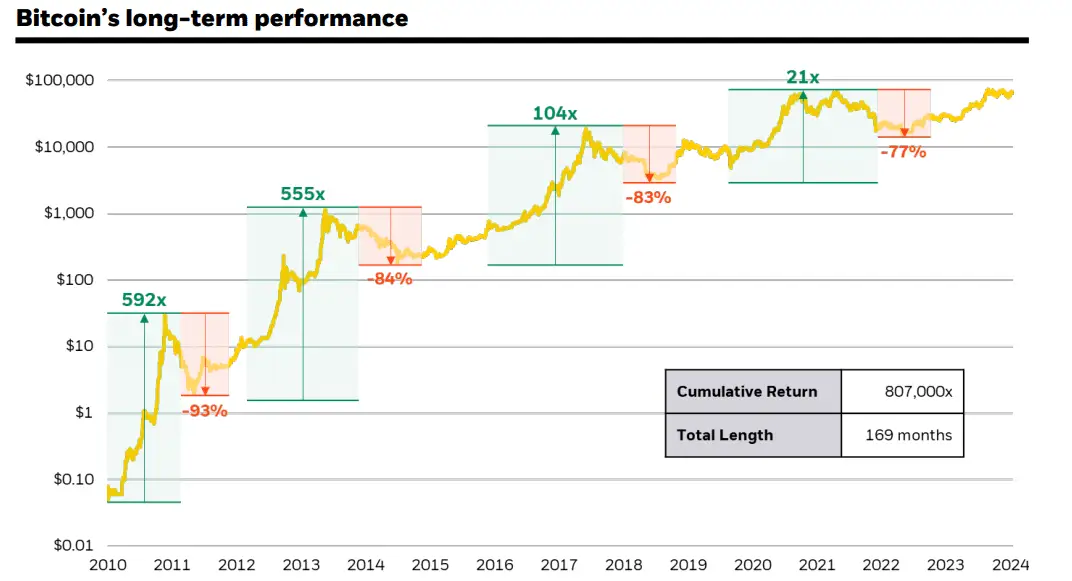- Topic
79k posts
59k posts
52k posts
50k posts
48k posts
45k posts
43k posts
42k posts
39k posts
38k posts
- Pin
- #交易机器人 # Trading daily attendance #新人福利 # BTC
🏃 Trading bot marathon season: double rewards, share $300,000 big prize!
🥇 Continuous strategy daily attendance, earn more grid profits + activity rewards.
🔥 Let time Mining for you and win up to 3,300 USDT individual rewards!
🔗 Participation registration: https://www.gate.io/announcements/article/39589
- 🎉 Gate.io Honor Credits Grand Draw Round 3️⃣ is Now Live!
How to Join?
1️⃣ Head to the Gate Post ‘Credits Center’ and complete tasks
2️⃣ Earn Honor Credits and hit ‘Draw Now’ for your chance to win!
➠ Every 500 credits gives you a shot!
🎁 MacBook Air, exclusive merch, and more awesome prizes await!
⏰ Event Time: September 26th 00:00 - October 6th 16:00 (UTC)
Draw Now 👉 https://www.gate.io/activities/creditprize?now_period=3
Learn more: https://www.gate.io/announcements/article/39517
#HonorCredits#
- With cyber threats on the rise, collaboration is key for building adaptable, multi-layered security strategies.
At #Gate.io# , we’re partnering across the industry and innovating to create a safer, stronger blockchain ecosystem together.
Learn more: https://www.gate.io/announcements/article/39567
- ✍️ From keynotes with Dr. Lin Han and AWS to celebrating the momentous ceremony with Inter Gateway to Championships united blockchain and sports!
🚀 We explored the future of #Web3# , had great discussions, and wrapped up with an excellent dinner.
Learn more: https://www.gate.io/announcements/article/39366
#Gateio# #Inter# #Crypto# #GatewayToChampionships# - 🔥 Join Topic Discussion in Gate.io Chat Community & Win Bounty Prizes Every Day 🔥
Participate:
1⃣Join Gateio Chat Community
2⃣Discuss the trending topics presented by the admin
3⃣Stand to be selected & win token prizes every day!
2 - 5 winners, each $5 Points
Join #Gateio# Chat Community:
👉🏻 Open Gate.io App - Click "Moments" - Find "Chat" - Enter " Gate.io Group" or
🔗 Click the link to enter: https://gateio.oneLink.me/LHro/group?chatroom=group
Striking comment on Bitcoin: "This was the last one"
Charles Edwards, the founder of Capriole Investments, who interprets Bitcoin halving cycles, made noteworthy statements.
The fourth Bitcoin halving took place in April. With this halving, block rewards were reduced to 3,125 BTC. Many crypto analysts have claimed that the fourth halving has initiated a new bull cycle.
Edwards, who said, 'This was the important last Bitcoin halving', claimed that there would be no parabolic price increases after the 2028 halving.
Is Bitcoin experiencing the end of a bull cycle?
According to a recent BlackRock report, the price of Bitcoin (BTC) has increased by 592 times since its launch in 2009. The leading crypto has exhibited parabolic rises after each of the last three halvings.
After the halving in 2013, BTC provided a return of 555 times, while after the halving in 2017, investors made a profit of 104 times. On the other hand, a return of 21 times was obtained after the halving in 2020. It is expected that these rises will be repeated after the fourth halving, which took place in April.
The founder of Capriole Investments expressed that the current rise is the last bull cycle and that there will be no impact of halvings after 2028.
The financial expert recorded the following;
"Halving events are well known, and due to the highly efficient BTC mining industry, you will not experience significant price increases. I think the 4-year halving cycles will not be valid after 2028."
"The next halving will not be very important because the inflation rate of BTC is below that of gold. Therefore, a significant price drop will not affect BTC much."
Stockmoney Lizards, an analyst who interprets market trends, has made a prediction for the peak of the current bull cycle. The analyst claims that BTC will be priced between $200,000 and $260,000 by the end of 2025.
This article does not contain investment advice or recommendation. Every investment and trading action carries risk, and readers should conduct their own research when making decisions.